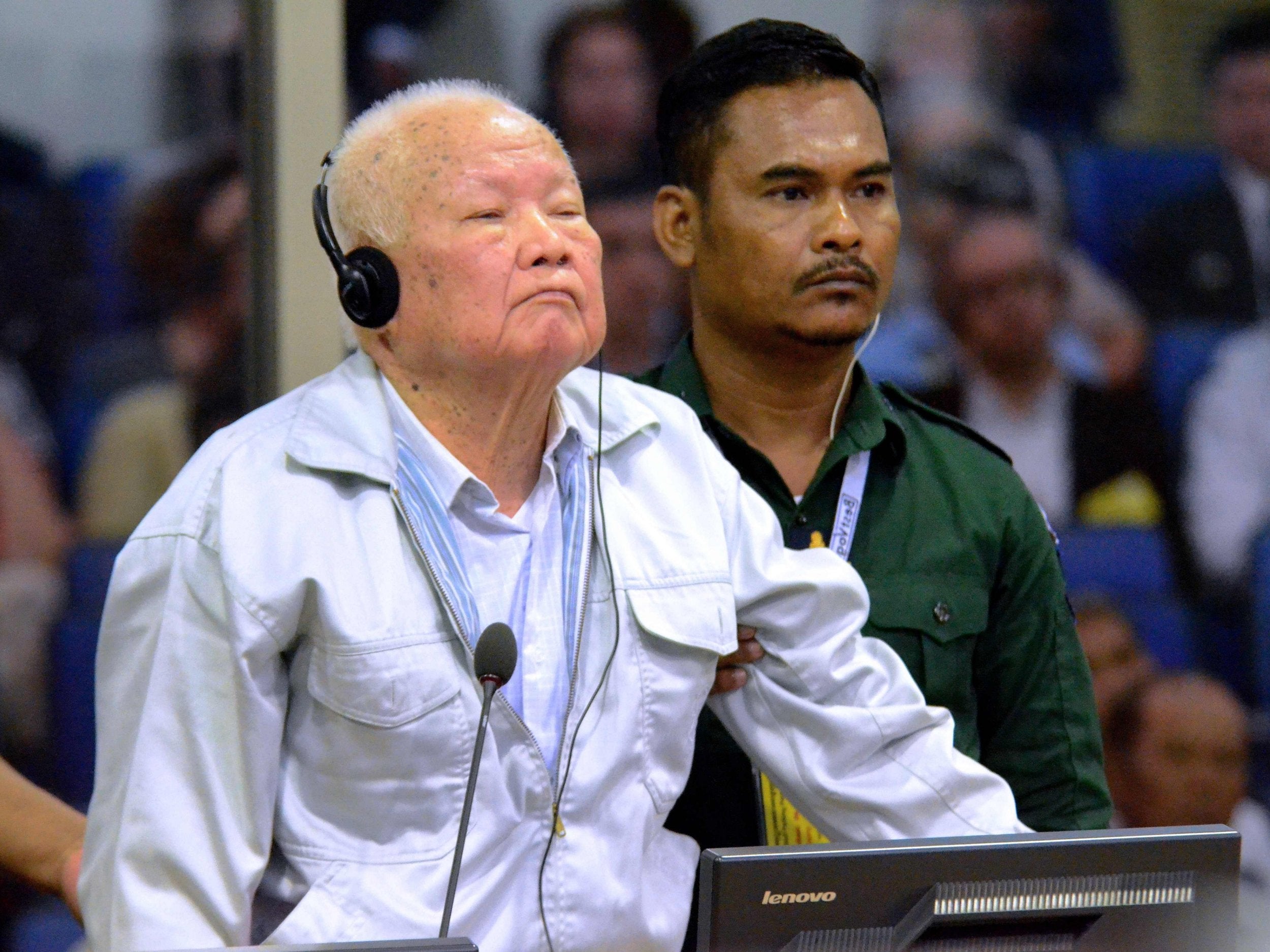Khmer Rouge leaders found guilty of Cambodia genocide and war crimes in historic ruling
Nuon Chea and Khieu Samphan become first Khmer Rouge leaders to be held to account by an international tribunal

The only two surviving leaders of Cambodia‘s brutal Khmer Rouge regime have been found guilty of genocide, crimes against humanity and war crimes, in a historic ruling by an international tribunal.
Nuon Chea and Khieu Samphan have been sentenced to life in prison. They become the first Khmer Rouge leaders to be held to account by an international court for a campaign of genocide against the Vietnamese and Cham minorities in Cambodia in the 1970s.
The court found Khieu Samphan not guilty of genocide against the Cham, for lack of evidence, though he was found guilty of genocide against the Vietnamese under the principle of joint command responsibility.
The Khmer Rouge sought to achieve an agrarian utopia by emptying the cities to establish vast rural communes. Instead, their radical policies led to what has been termed “auto-genocide” through starvation, overwork and execution.
The crimes against humanity convictions covered activities at work camps and cooperatives established by the Khmer Rouge.
These offences comprised murder, extermination, deportation, enslavement, imprisonment, torture, persecution on political, religious and racial grounds, attacks on human dignity, enforced disappearances, forced transfers, forced marriages and rape.
The breaches of the Geneva Convention governing war crimes, included wilful killing, torture and inhumane treatment.
Nuon Chea, 92, was brought by ambulance and Khieu Samphan by van from the nearby prison where they are held.
The prison and the courthouse were custom-built for the use of the tribunal, which is officially called the Extraordinary Chambers in the Courts of Cambodia, or ECCC.
Both defendants were present, as Judge Nil Nonn opened the proceedings, but Nuon Chea suffers heart problems, so was granted permission to later move from the hearing room to a separate holding room.
Khieu Samphan, 87, was present for the entire hearing and with the help of two security guards stood as his sentence was read, showing no obvious emotion.
A large crowd of spectators attended Friday’s session, including members of the Cham minority.
Lah Sath, a 72-year-old Cham man from the eastern Kampong Cham province, brought his wife and four young granddaughters to Friday’s session.
He said he often heard people talking about the trial and sometimes watched it on TV, but decided it was time to see it with his own eyes.

Just talking about the Khmer Rouge brought back horrible memories of life during those years, he said.
The Cham were treated as enemies and exploited without mercy as they were forced to do intensive farm labour, he recalled.
Lah Sath said his younger brother was killed by Khmer Rouge for failing to take good care of a cow.
In addition to Nuon Chea and Khieu Samphan, the tribunal has carried out one other prosecution, resulting in the 2010 conviction of Kaing Guek Eav – known as Duch – who, as head of the Khmer Rouge prison system, ran the infamous Tuol Sleng torture centre in Phnom Penh.
Additional reporting by AP
Join our commenting forum
Join thought-provoking conversations, follow other Independent readers and see their replies
Comments
Bookmark popover
Removed from bookmarks